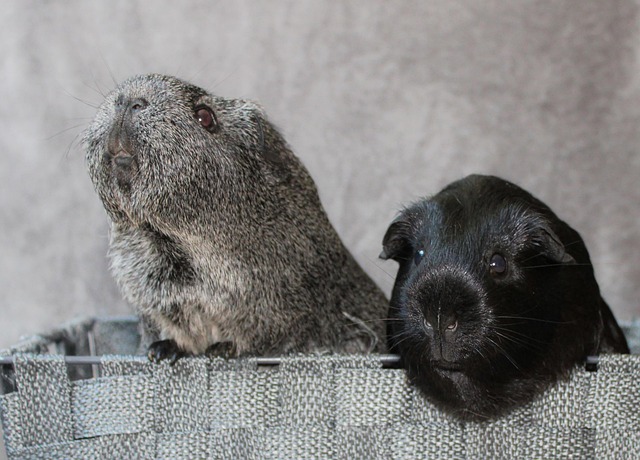Need to travel with your guinea pigs or rabbits? Whether it’s a quick trip to the vet, moving house, or you’re considering taking them away with you – here’s everything you need to know to keep your little fluffballs safe and as comfortable as possible.
This isn’t about making travel feel like home, it’s about protecting them, minimising stress, and prioritising safety.
Do I Need a Special Carrier for Guinea Pigs or Rabbits?
Yes – always. A secure, hard-sided pet carrier is a must for transporting small pets. Look for one with both front and top openings, proper ventilation, and a solid base. This makes it safer in the car and easier to clean.
Avoid cardboard boxes or makeshift setups. They’re just not safe. A proper rabbit or guinea pig travel carrier is worth the investment – for short and long journeys. Guinea pigs don’t chew as much as rabbits, so you can get away with a fabric cat carrier with mesh sides but still firm. Just beware these can get warmer than those with more ventilation

Kavee Guinea Pig and Rabbit Carrier


How Can I Make the Carrier More Comfortable for Travel?
Line it with newspaper (not puppy pads – they’re not good if ingested), then add some soft hay. This helps with absorption, comfort, and gives them something familiar to chew.
You can also include a small hidey house or cardboard tunnel for security, as well as a little used bedding so it smells like home. If they’re bonded and normally live together, it’s usually best to travel them together.
Can I Get Them Used to the Carrier in Advance?
Yes – and it’s a brilliant idea.
Place the carrier in their enclosure well before travel. Let them explore it at their own pace so it becomes a familiar space. You can even encourage them to sleep in it by making it extra cosy. This reduces anxiety massively on travel day.
Adding a handful of their own hay and used bedding inside will help it smell like their space – again, comfort through familiarity.
How Do I Transport Them Safely in the Car?
This is crucial.
Your rabbit or guinea pig’s safety during car travel matters more than maintaining normal routines.
Even if it’s a short trip, your priority should be: What happens if there’s an accident?
Place the carrier on the car floor behind the front seat if possible, or on a seat secured with a seatbelt. The carrier must be level, stable, and never at risk of flying off if you brake suddenly.
Don’t:
-
Put them on your lap
-
Let them sit loose in the car
-
Place them unbelted in the boot
It’s not worth the risk.

DO NOT LEAVE THE CARRIER OPEN OR HAVE THEM ON YOUR LAP IN THE CAR



Should I Give Them Food or Water While Travelling?
For shorter journeys, just some hay and maybe a slice of cucumber is plenty. Most guinea pigs and rabbits won’t eat much during car travel anyway due to stress.
For longer car journeys, stop occasionally to offer water and check they’re not overheating. You can pack a collapsible bowl or use a drip-free bottle during breaks – not while moving.
What to Do After the Trip
As soon as you arrive, get them settled somewhere calm and quiet. Offer fresh hay, familiar food, and space to decompress.
Watch them closely. If they’re not eating, pooing, or acting normally after the journey, keep a close eye – especially in the 24 hours post-travel. Gut stasis and stress can sneak in quickly in small animals.
Can You Take Rabbits or Guinea Pigs on Holiday?
You can – but should you?
If your pets are used to travel, and you’ve got a quiet, secure setup waiting for them (not a loud hotel room or a tent with flappy sides), it might work.
But if they’ll be left alone a lot, surrounded by unfamiliar sounds, or without proper facilities, they’re probably better off with a knowledgeable pet sitter or small animal boarding service.
Think long and hard. Holidaying with rabbits and guinea pigs should only happen if it’s clearly in their best interest – not just for your convenience.
Want More Tips Like This?
If you found this helpful, you might love my free resources for small pet owners — including my Potty Training eBook, free tip sheets, and more.
I keep things realistic, kind, and totally fluff-filled. No judgement. Just practical advice from someone usually covered in hay.
